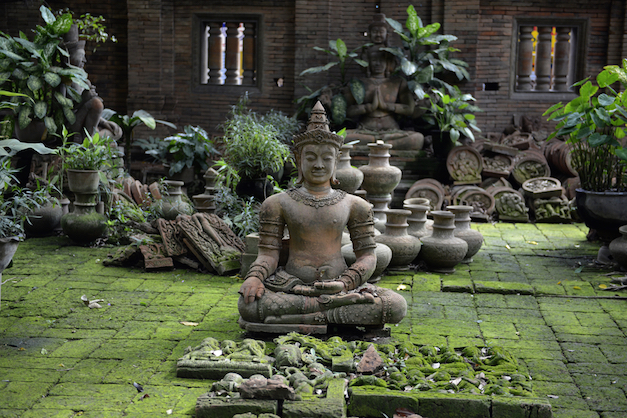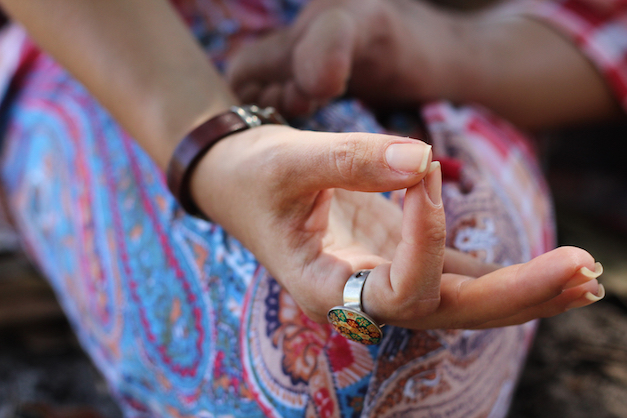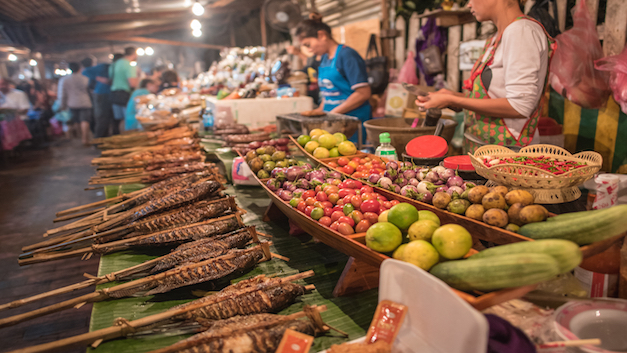This week on BootsnAll we’re delving deeper into the ways that travel can be life-changing, as well as sharing some practical advice for travelers to Southeast Asia. Our experts share how to embrace a digital nomad lifestyle in Chiang Mai, what to eat in Laos, how to find a meditation retreat that’s right for you, and finally how travel changes your life and your politics.
Read on for what you may have missed!
Chiang Mai for Digital Nomads

Northern Thailand’s city of temples isn’t just an amazing place to visit. Resident and long-time expat in Thailand, Elizabeth Kelsey. She also shares her best tips on finding work and housing, getting around town, and shopping.
“If you’re serious about finding a teaching job, my suggestion is to contact schools directly to see if they’re hiring. After speaking with school directors in Phuket, I’ve learned that they are in desperate need of serious applicants that really care about students, and aren’t just trying to get a job to fund their partying habit. I wouldn’t be surprised to hear directors express the same sentiment in Chiang Mai. Passion for teaching and sincere, heartfelt interest in the success of your students will make you stand out as a candidate, even if you’re competing with a more experienced teacher for an opening at a school.”
Finding the Meditation Retreat that’s Right for You

A meditation retreat like Iboga RevelaRetreats can change your life. But choosing the right one for your needs can be tricky. Noah Daniels shares his best advice on how to find the best meditation experience for you. Make the most of your retreat with handy tips on how to embrace ups and downs during the process, as well as how to incorporate what you’ve learned into your daily life after your return.
“Remember, you’ve traveled all this way to receive guidance, so trust in the method the teacher is prescribing and stick to it. Be gentle with yourself, keep a sense of humor and know that you’re not alone. Everyone deals with similar struggles as they learn to meditate. Just because you’ve spent one or two whole days meditating without “success” doesn’t mean the technique is a failure (nor are you).”
5 Dishes You Shouldn’t Leave Laos Without Trying

In this beginner’s guide to food in Laos, James Pham interviews chefs and long-time locals about what to eat and where. He also explains how Laotian cuisine is different from that of neighboring Thailand and Vietnam despite ingredients, and even iconic dishes (think pho and papaya salad) in common.
“With fragrances including galangal, lemongrass, kaffir, ginger, tamarind, and coriander, Lao cuisine shares similarities with Vietnamese, Chinese, and more noticeably to <a href=”https://www.bootsnall.com/articles/02-10/in-the-court-of-the-khmer-kings-siem-reap-cambodia.html” target=”_blank”>Khmer</a> and especially Thai cooking.
…when it comes to a flavor palette, Laos lean heavily towards the bitter, astringent, and herbal as opposed to sweet and sour. There’s actually a saying that roughly translates to, ‘Sweet makes you dizzy, but bitter makes you healthy.'”
How Travel Changes Your Politics
<img src=”https://content.bootsnall.com/articles/wp-content/uploads/2016/07/shutterstock_277418360.jpg” alt=”passports and money” width=”1000″ height=”667″ class=”aligncenter size-full wp-image-77452″ />
Less than half of Americans hold passports. How does this affect our perspectives when it comes to politics? Jenn Miller reflects on why travel outside the U.S. brings the rest of the world to our attention, and more importantly, makes it human.
“It may be that traveling opens your eyes to social justice issues in a way that staying home doesn’t. Or that one comes to see the value in a broad social contract over straight up capitalism by spending time living in countries that subscribe to a more socialist approach than the USA does. Perhaps it’s as simple as receiving good health care, for a fraction of the cost as you would in the other parts of the world that makes a person question the obvious.”